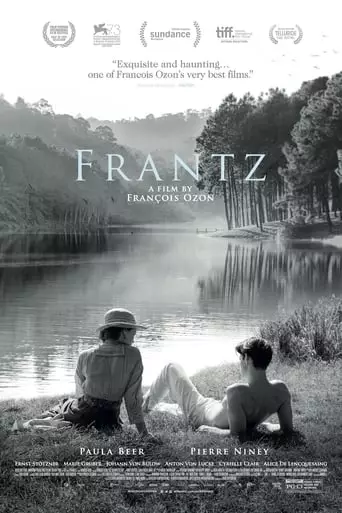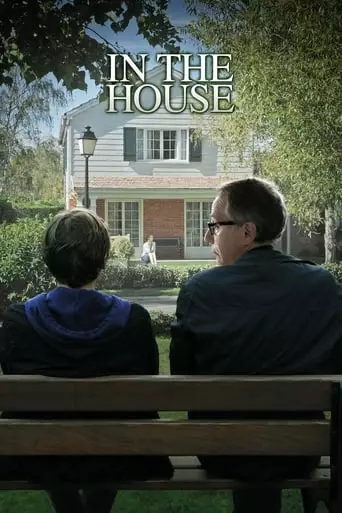In 1930s Paris, Madeleine, a pretty, young, penniless and talentless actress, is accused of murdering a famous producer. Helped by her best friend Pauline, a young unemployed lawyer, she is […]

In 1930s Paris, Madeleine, a pretty, young, penniless and talentless actress, is accused of murdering a famous producer. Helped by her best friend Pauline, a young unemployed lawyer, she is […]

Chloé, a fragile young woman, falls in love with her psychoanalyst, Paul. A few months later she moves in with him, but soon discovers that her lover is concealing a […]

In the aftermath of WWI, a young German who grieves the death of her fiancé in France meets a mysterious French man who visits the fiance’s grave to lay flowers.

A young woman makes a surprising discovery about the husband of her late best friend.

A British crime novelist travels to her publisher’s upmarket summer house in Southern France to seek solitude in order to work on her next book. However, the unexpected arrival of […]

Eight women gather to celebrate Christmas in a snowbound cottage, only to find the family patriarch dead with a knife in his back. Trapped in the house, every woman becomes […]

Romain, 31, a fashion photographer with terminal cancer, elects to die alone, preparing others to live past him rather than prolong the inevitable with chemotherapy or be smothered in sympathy […]

A sixteen-year-old boy insinuates himself into the house of a fellow student from his literature class and writes about it in essays for his French teacher. Faced with this gifted […]

Isabelle, a 17-year-old student, loses her virginity during a quick holiday romance. When she returns home, she begins a secret life as a prostitute for a year.
François Ozon: The Provocateur of Modern French Cinema
François Ozon is one of France’s most prolific and versatile filmmakers, celebrated for his daring exploration of human relationships, sexuality, and the fragility of identity. Known for his ability to shift seamlessly between genres—from psychological thrillers to musicals and intimate dramas—Ozon’s work has made a significant impact on contemporary cinema.
Early Life and Education
Born on November 15, 1967, in Paris, France, François Ozon grew up in a family that valued creativity and artistic expression. After earning a degree in film studies at the University of Paris, Ozon honed his craft at the prestigious La Fémis film school.
During his time at La Fémis, Ozon directed a series of short films, including Une robe d’été (A Summer Dress, 1996), which gained critical acclaim for its playful and provocative exploration of sexuality. These early works established Ozon as a filmmaker unafraid to tackle taboo subjects with wit and sensitivity.
Feature Film Debut: Sitcom (1998)
Ozon’s feature-length debut, Sitcom, was a dark comedy about a suburban family unraveling after the arrival of a pet rat.
Themes: The film delved into taboo topics such as incest and repression, setting the tone for Ozon’s fearless approach to storytelling.
Style: Combining absurdist humor with psychological depth, Sitcom showcased Ozon’s flair for blending satire with emotional resonance.
Signature Works
Ozon’s career is marked by a diverse array of films that defy easy categorization. Each film is a testament to his talent for reinvention:
Under the Sand (2000):
A haunting psychological drama starring Charlotte Rampling as a woman grappling with her husband’s sudden disappearance.
Significance: The film cemented Ozon’s reputation as a director capable of profound emotional storytelling, earning international acclaim.
8 Women (2002):
A vibrant musical-comedy-mystery featuring an ensemble cast of iconic French actresses, including Catherine Deneuve, Isabelle Huppert, and Emmanuelle Béart.
Themes: Combining camp with genuine emotion, the film explored themes of family secrets, betrayal, and female solidarity.
Accolades: The film won the Silver Bear at the Berlin International Film Festival and was a major box office success.
Swimming Pool (2003):
A psychological thriller about a British author (Charlotte Rampling) whose stay at a French countryside villa takes an unsettling turn.
Legacy: Known for its ambiguity and sensual tension, the film became one of Ozon’s most internationally recognized works.
The New Girlfriend (2014):
A provocative exploration of gender identity and desire, starring Romain Duris as a widower with a secret life.
Themes: Ozon’s compassionate portrayal of unconventional relationships highlighted his commitment to challenging societal norms.
Frantz (2016):
A historical drama set in the aftermath of World War I, centered on a young German woman and a mysterious Frenchman.
Style: Shot predominantly in black-and-white with occasional bursts of color, the film explored themes of grief, guilt, and forgiveness.
Acclaim: Frantz received widespread praise for its emotional depth and visual beauty.
By the Grace of God (2018):
A powerful drama based on a real-life case of sexual abuse within the Catholic Church.
Impact: Ozon approached the subject with sensitivity and urgency, earning the Jury Grand Prix at the Berlin International Film Festival.
Recurring Themes and Style
Ozon’s films often center on complex relationships and the fluidity of identity. Common themes include:
Sexuality and Desire: Ozon explores the full spectrum of human sexuality, breaking taboos and challenging societal conventions.
Ambiguity and Mystery: Many of his films, like Swimming Pool and Frantz, thrive on moral and narrative ambiguity, leaving interpretations open to the viewer.
Homage to Cinema: Ozon frequently draws inspiration from classic films and genres, paying homage to directors like Alfred Hitchcock, Douglas Sirk, and Rainer Werner Fassbinder.
Empathy and Humanity: Despite his provocative subjects, Ozon’s films often emphasize compassion and the emotional complexity of his characters.
Legacy and Influence
François Ozon is considered one of the most important figures in modern French cinema. His ability to reinvent himself with each film has kept audiences and critics captivated. Directors and filmmakers across the globe have cited his work as a source of inspiration for its bold storytelling and genre-defying approach.
Ozon’s commitment to exploring the depths of human experience—whether through intimate dramas or vibrant ensemble pieces—ensures his place as a leading voice in international cinema.
Conclusion
François Ozon’s career is a testament to the power of cinema as a medium for challenging norms, exploring identities, and celebrating the complexities of human life. With a diverse body of work that continues to surprise and provoke, Ozon remains a fearless innovator whose films resonate deeply with audiences around the world.